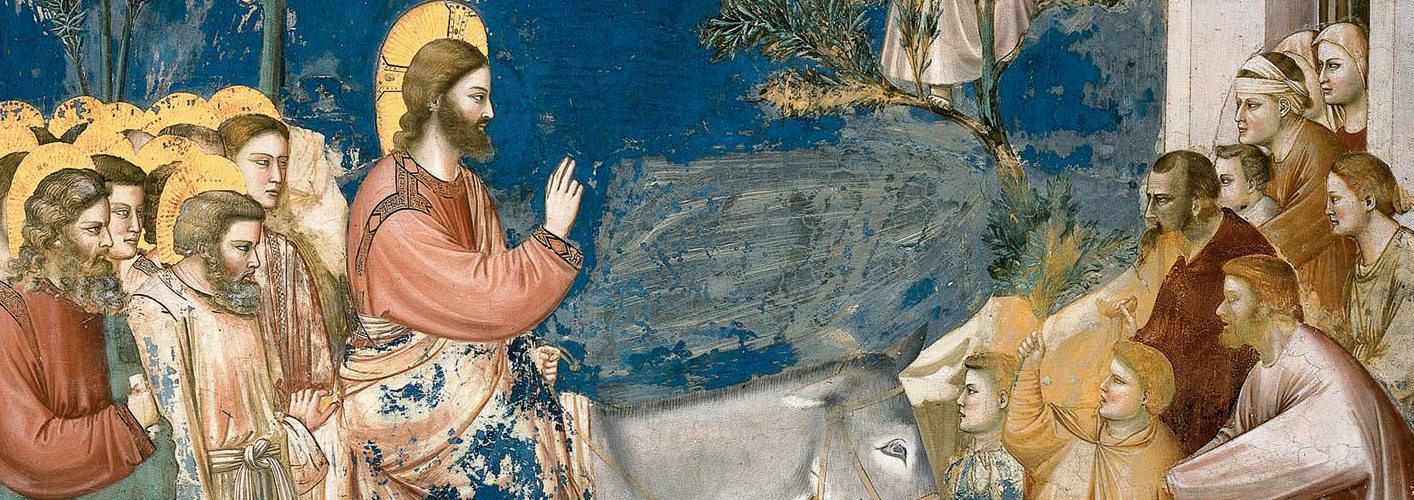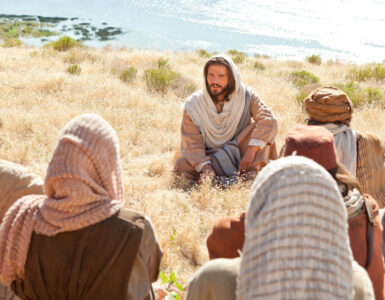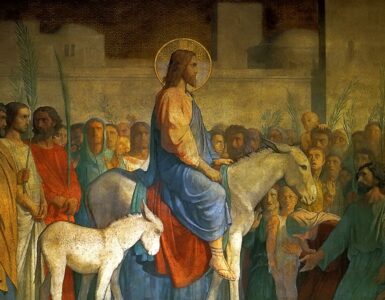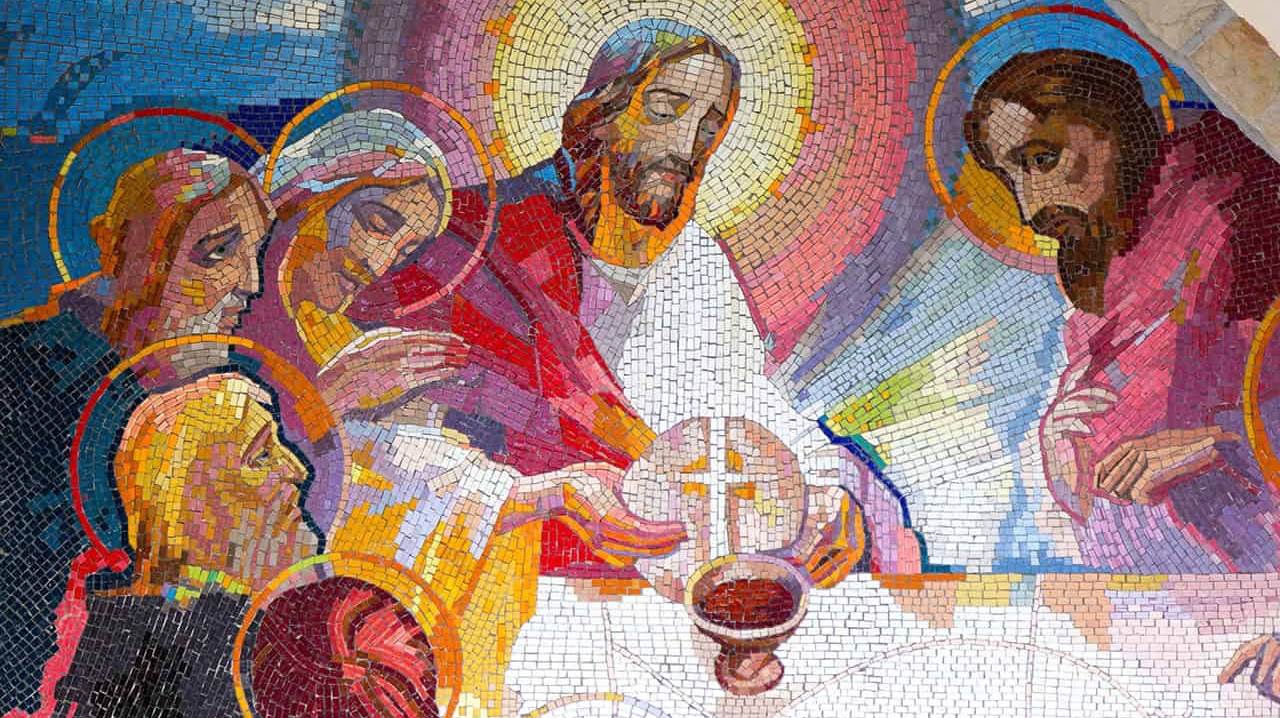A day before the celebration of Palm Sunday I woke up with a great feeling as I was joyfully serving Jesus through our dear brothers and sisters, the cancer patients at Sir Anthony Mamo Oncology Centre in Malta. The great thought that struck my heart was the following one: the powerful impact of the word Hosanna.
Soon I started to search to see what it really meant. What I found is very striking. Let me put it as it came to me, I did not find something extraordinary, detailed and very dense in writing. Nothing at all. The information I got is the following one, simple, clear but full of life. It says: The crowd is shouting, “Hosanna! Hosanna!” It sounds like it might be happy, but it isn’t. Hosanna doesn’t mean “Hooray” or “Cheers” or anything we imagine yelling in a parade. In both Hebrew and the equivalent Greek, hosanna means “help us” or “save us.” The people waving leafy branches are calling for Jesus to deliver them. They want salvation from Roman oppression, from physical ailments, from the unbalanced legal system of the time.
As we know, what mattered for these people was political deliverance from the Romans. However, they did not realize that what they really needed was to be saved from their internal slavery, the slavery of sin which divided them from God as well as from one another. Upon reading the Gospel of the day, taken from John 11:45-56, I came to realize a very important clue, thanks of course to the Holy Spirit who helped me understand it. John writes in the Gospel:
Many of the Jews who had come to Mary and seen what Jesus had done began to believe in him. But some of them went to the Pharisees and told them what Jesus had done. So the chief priests and the Pharisees convened the Sanhedrin and said,“What are we going to do? This man is performing many signs. If we leave him alone, all will believe in him, and the Romans will come and take away both our land and our nation.” But one of them, Caiaphas, who was high priest that year, said to them, “You know nothing, nor do you consider that it is better for you that one man should die instead of the people, so that the whole nation may not perish.” He did not say this on his own, but since he was high priest for that year, he prophesied that Jesus was going to die for the nation, and not only for the nation, but also to gather into one the dispersed children of God. So from that day on they planned to kill him.
Jesus helps and saves by uniting. This fact is also reflected by Jesus’ prophecy on Jerusalem. When he saw the city Jesus, with a broken heart, lamented: O Jerusalem, Jerusalem, killing the prophets and stoning those who are sent to you! How often would I have gathered your children together as a hen gathers her brood under her wings, and you would not!Behold, your house is forsaken and desolate. For I tell you, you will not see me again, until you say, `Blessed is he who comes in the name of the Lord (Mt 23:37-39). The connection between Hosanna as unifying the people and saving them through that union is so clear.
Even in the first reading for Palm Sunday comes this idea of saving through unifying. Here is the reading from the Book of Eżekiel (Ez 37:21-28):
Thus says the Lord God: I will take the children of Israel from among the nations to which they have come, and gather them from all sides to bring them back to their land. I will make them one nation upon the land, in the mountains of Israel, and there shall be one prince for them all. Never again shall they be two nations, and never again shall they be divided into two kingdoms. No longer shall they defile themselves with their idols, their abominations, and all their transgressions. I will deliver them from all their sins of apostasy, and cleanse them so that they may be my people and I may be their God. My servant David shall be prince over them, and there shall be one shepherd for them all; they shall live by my statutes and carefully observe my decrees. They shall live on the land that I gave to my servant Jacob, the land where their fathers lived; they shall live on it forever, they, and their children, and their children’s children, with my servant David their prince forever. I will make with them a covenant of peace; it shall be an everlasting covenant with them, and I will multiply them, and put my sanctuary among them forever. My dwelling shall be with them; I will be their God, and they shall be my people. Thus the nations shall know that it is I, the Lord, who make Israel holy, when my sanctuary shall be set up among them forever.
The Lord God unites them in the oneness of faith and heart to love Him and recognize them as their only God. In doing so they can be united by loving each other and be the one people of God. Hence, we may say that there is a close link between adoring and loving God with one’s heart and might one’s neighbour as oneself. Jesus spelled out to us this saving reality when he answered to the disciples of the Pharisees and Herodians: You shall love the Lord your God with all your heart, and with all your soul, and with all your mind. This is the great and first commandment. And a second is like it, You shall love your neighbor as yourself. On these two commandments depend all the law and the prophets (Matt 22:37-40). Jesus was not talking about self-preservation but about loving God as the Father of every human person and each human person because in that person the love of the Father resides and, thus, is a brother to other people too.
The Gospel of John talks to us about people who depart from this saving aspect of hosanna. It presents to us a tiny group which wanted only self-preservation and not the Israel wanted by God to be open for all the nations. Pope Francis has an interesting explanation about these people. In his homily at a Mass in the chapel of Santa Marta during the Covid pandemic, on April 4, 2020, he commented:
After the resurrection of Lazarus, many Jews went there to see the sisters and Lazarus, but some to see what had happened in order to report, and some of them went to the Pharisees and told them what Jesus had done (see Jn 11:45). (…) At this moment, this group that had formed among the doctors of the law had a formal meeting: “He is so dangerous, we have to make a decision. What should we do? This man performs many signs” – they recognise the miracles –“‘If we let Him continue, everyone will believe in Him. It is dangerous. They will follow Him and they will separate themselves from us” – the people were not attached to them (…) Thus they spoke among themselves. One of them, Caiaphas (…) This was the high priest and he made the proposal: “Let us get rid of Him”. (…) no one said clearly: “This man needs to be gotten rid of.” The way that the doctors of the law proceed is precisely a model of how temptation works in us (…): it begins with something small, a desire, an idea, it grows, it infects others and in the end it justifies itself.
Their pride isolates them from Jesus’ salvation to them. On the contrary, it is those who are humble that can be opened to God’s salvation. St Ephrem the Syrian 306-373) vividly reminds us: “Hosanna!”—which means : “Save!” “Hosanna to You Who are in the highest. O Almighty, save those who are humbled. Have mercy on us, in consideration of our palms,may the palms we wave move Your Heart, You who come to call Adam”…
Lord Jesus, open my heart to your help and salvation by making me humble before your eyes. Lord, may you increase and I decrease. Unite me to you and to your mystical body, the Church, and to every human person in whom you tell me, as the one and true King of all ages: `Truly, I say to you, as you did it to one of the least of these my brethren, you did it to me.’ (Matt 25:40).
Amen.





























